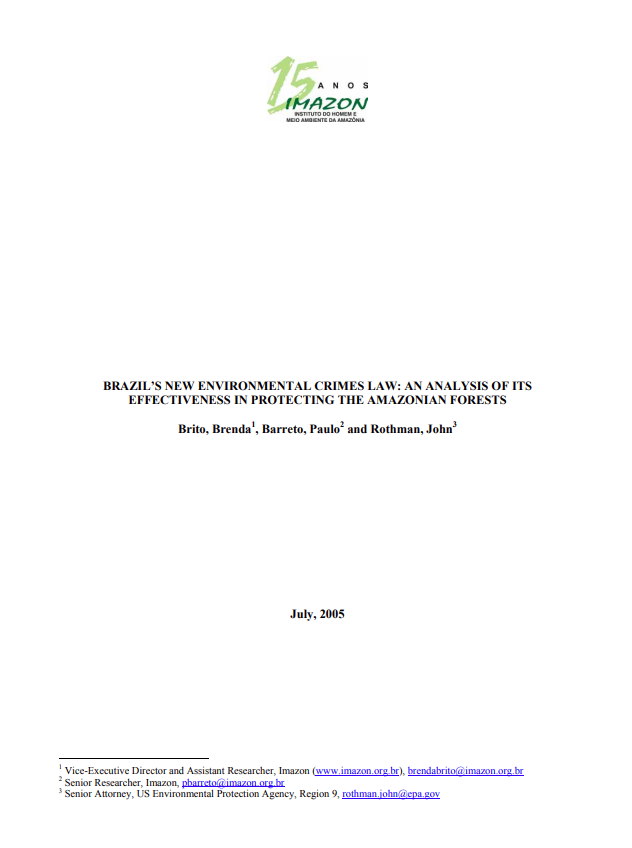

| Título | New Brazilian Environmental Crimes Law: an analysis of its effectiveness to protect the forests of Amazônia |
| Autores | Brenda Brito Paulo Barreto John Rothman |
| Ano de publicação | 2005 |
| Download |
Brito, B., Barreto, P., & Rothman, J. 2005. New Brazilian Environmental Crimes Law: an analysis of its effectiveness to protect the forests of Amazônia. INECE 7th International Conference on Environmental Compliance and Enforcement (285-289). Proceedings Volume 1. INECE.
In order to evaluate the effectiveness of the new Brazilian environmental crimes law, we analyzed 55 judicial actions involving forestry crimes in the federal courts of Belém, the capital of Pará. Pará is the Brazilian state that currently accounts for 40% of Amazon- ian logging. We identified the kinds of crimes committed, and the kind of penalties assessed and collected. We then identified the main obstacles to effective enforcement against environmental violators and propose some solutions to these problems. We conclude that the two principle obstacles to effective enforcement arise from 1) the ineffective communication among the agencies responsible for applying the law and 2) inability to apply penalties resulting from environmental crimes to environmental projects. In order to resolve these problems we propose: 1) adaptation for Pará of models of communication that have already been used successfully in another part of Brazil; and 2) use of environ- mental funds to enable penalties for environmental projects to be used for environmental purposes.
This post was published on 26 de junho de 2005
Amorim, L., Ferreira, R., Dias, M., Souza Jr., C., & Veríssimo, A. Sistema de Alerta…
Título Índice de Progresso Social Brasil 2025 Autores Melissa Wilm Daniel Santos Beto Veríssimo Marcelo…
Amorim, L., Ferreira, R., Dias, M., Souza Jr., C., & Veríssimo, A. Sistema de Alerta…
Título Relatório Anual do Desmatamento no Brasil - RAD2024 Autores Carolina Del Lama Julia Shimbo…
Título Fatos da Amazônia 2025 Autores Daniel Santos Manuele Lima Agatha Vilhena Beto Veríssimo Caíque…
Amorim, L., Ferreira, R., Dias, M., Souza Jr., C., & Veríssimo, A. Sistema de Alerta…